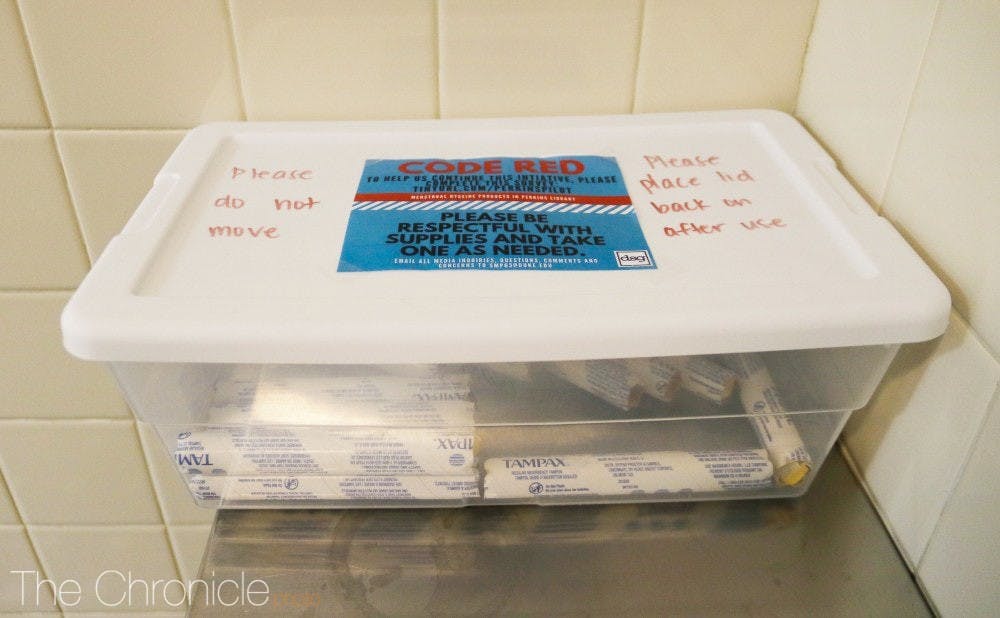It’s midterm season, and it feels like you’ve been in Perkins for years. After 20 minutes of walking in circles, you’ve finally found a seat at a table in Vondy. You have no intention of leaving anytime soon.
That is, until you realize that you forgot a tampon.
That may be the reality for many menstruating students at Duke University, and one of many motivating factors for Code Red—a student-led initiative that provided free feminine hygiene products this spring in several bathrooms as part of a pilot program. This week may decide whether free menstrual products in Perkins are here to stay.

On Wednesday, the leaders of the initiative will present to Duke Student Government, hoping for a resolution in support of their efforts. They will then take the proposal to the Department of Facilities Management for formal implementation by the administration.
A similar pilot program in spring of 2017 led to the free tampon dispensers in the Bryan Center. Similar initiatives exist across campus, but the Bryan Center—seen as the central location on campus—is the only place where the Department oversees the implementation.
“We believe that, because of the number of students who stay and spend a significant portion of their time in Perkins library, it’s far more practical to provide hygiene products in Perkins than it is to simply keep it to the Bryan Center,” said senior Sabriyya Pate, former attorney general of DSG and leader of Code Red.
In a survey conducted during the Bryan Center pilot program, almost half of respondents recommended the expansion of the services to Perkins library, according to Pate. A similar survey during the Perkins pilot showed that 88 percent of respondents marked their need for menstrual hygiene products as “often,” “very often” or “always,” Pate said.
Code Red began after a coalition of students came together to address the issue of feminine hygiene equity and accessibility. Last year, they said they requested surplus funding from DSG and bought bulk hygiene products. A team of volunteers took turns restocking various women’s bathrooms in Perkins every Sunday, and they would find that everything they had stocked the previous week was gone.
Pate said that they have been working on the proposal ever since the pilot program ended in April.
More than one thousand students, alumni, staff and student groups have signed a statement of support for the initiative. The signatory student groups include the biology department, the Muslim Student Association, Duke Panhellenic Association, Blue Devils United, the Baldwin Scholars and the selective living group Round Table.
Other universities that currently provide free menstrual hygiene products include Brown, Emory, Cornell and most recently Harvard.
Get The Chronicle straight to your inbox
Sign up for our weekly newsletter. Cancel at any time.

